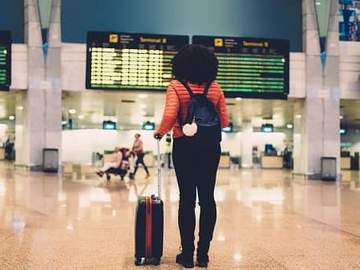Spelling in English can often be straightforward, but when it comes to words like “travel,” things get a little more complex. You might find yourself wondering whether it’s “travelled” or “traveled,” “Travelling” or “traveling.” Both forms appear frequently, suggesting there’s more to it than just a simple misspelling.
 woman looking at departures board
woman looking at departures board
The spelling might just change depending on where your travels take you.
The Single L vs. Double L Mystery
Looking at the origins of the single ‘l’ and double ‘l’ spellings reveals a clear geographical pattern. In the United States, “traveled” and “traveling” are the standard spellings. However, in virtually every other English-speaking country, “travelled” and “travelling” are the preferred forms.
This difference largely boils down to the influence of one key figure in American lexicography: Noah Webster. A strong advocate for spelling reform, Webster believed in making English spelling more logical and streamlined. He championed the idea that American English should not only be understandable but also more sensible than its British counterpart. One of his reforms was to simplify the spelling of “travel” by using only a single ‘l’ in its past tense and present participle forms.
Webster’s rationale is also behind the spelling variations of words like “canceled” and “cancelled.” In the US, “canceled” with one ‘l’ is common, while “cancelled” with two ‘l’s is the norm elsewhere.
When American English Keeps the Double L
It’s important to note that Noah Webster didn’t advocate for eliminating all double ‘l’s. He made an exception for words where the stress or emphasis falls on the syllable containing the ‘l’. In these cases, the double ‘l’ is maintained. Examples include words like “expelled” and “expelling,” “controlled” and “controlling,” and “patrolled” and “patrolling.” Here, because the accent is on the second syllable (-pelled, -trolled, -trolled), the double ‘l’ remains in American English as well.
